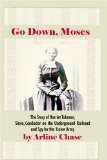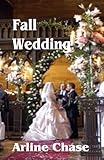 QUESTION from the e-mail: I’ve always wanted to be a writer. Recently I finished my first book and got it published. Like most, I tried to promote it by getting book reviews. I got several three and four-star reviews, but many of the reviewers had a lot of negative things to say, too. Sure, they praise my story. They all like the action and suspense. But then they complain about my commas, and my “point of view,” and my characters all talking alike. I went to college. I got good grades on all my term papers, so I ought to know a little about how to write. This negative stuff is hard to hear. Half the time, I don’t even know what they’re talking about. How can there be “too many semi-colons?” You use them when they’re needed, right? Maybe I should just forget about this whole thing.
QUESTION from the e-mail: I’ve always wanted to be a writer. Recently I finished my first book and got it published. Like most, I tried to promote it by getting book reviews. I got several three and four-star reviews, but many of the reviewers had a lot of negative things to say, too. Sure, they praise my story. They all like the action and suspense. But then they complain about my commas, and my “point of view,” and my characters all talking alike. I went to college. I got good grades on all my term papers, so I ought to know a little about how to write. This negative stuff is hard to hear. Half the time, I don’t even know what they’re talking about. How can there be “too many semi-colons?” You use them when they’re needed, right? Maybe I should just forget about this whole thing.
ANSWER: Good reviewers almost always talk about both the positive and negative aspects of a book. If they don’t, they are usually friends of the author who go and place a glorious, 5-star review just for friendship’s sake. So first thing I know from what you said is that these are “good, honest, unbiased” reviews, not the kind you pay for. They looked for things to pick on as well as nice things to say. That’s “fair and balanced” and tells folks right away that your reviewers are being honest with their praise. Every first novel gets hit hard by reviewers. Continue reading “Reviews Are Mixed. How To Deal by Arline Chase”


